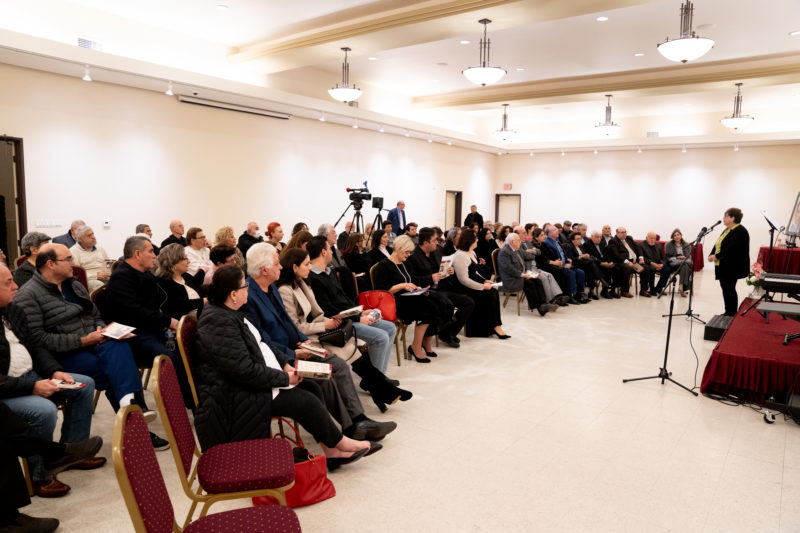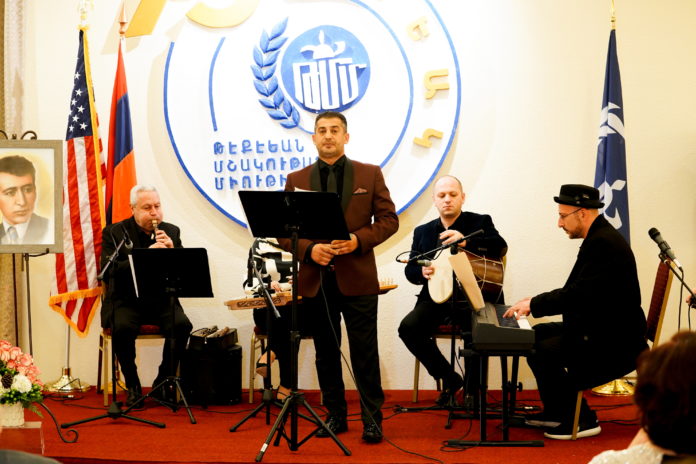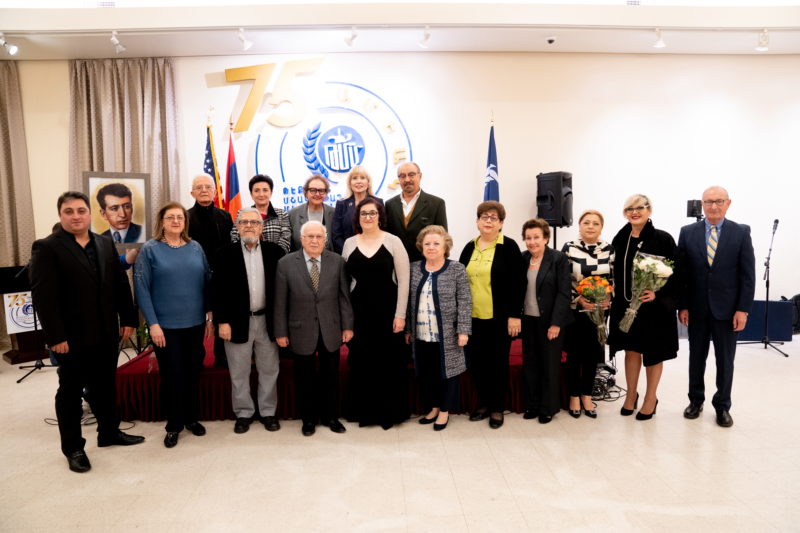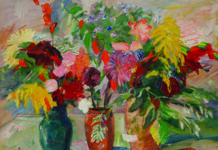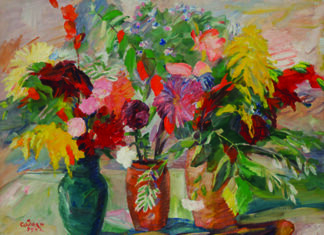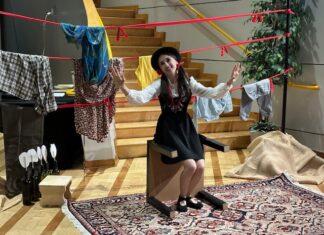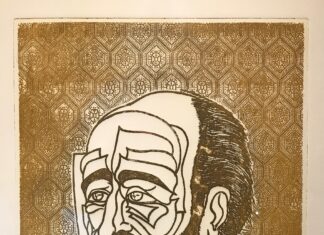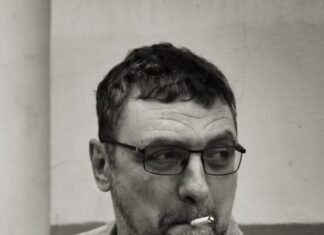ALTADENA, Calif. — There was nothing typical about the literary and musical program presented at the Tekeyan Cultural Association’s Beshgeturian Center in Altadena, dedicated to the 125th anniversary of the birth of Yeghishe Charents, the poet recognized as “the most important poet of the twentieth century” in Armenia. Instead of the usual speeches, followed by an artistic program, organizer and mistress of ceremonies Lilit Keheyan highlighted the events of the life of “our most tragic poet” through brief sketches, interspersed with recitations and performances of Charents’ poems set to music. The poet’s active support of Soviet Armenia, his socialist revolutionary ideology, subsequent disillusionment with that ideology, and arrest during the Great Purge of the 1930’s were all noted. Yet, the focus of the evening was not the revolution. It was the beauty of our country and the beauty of our identity as Armenians.
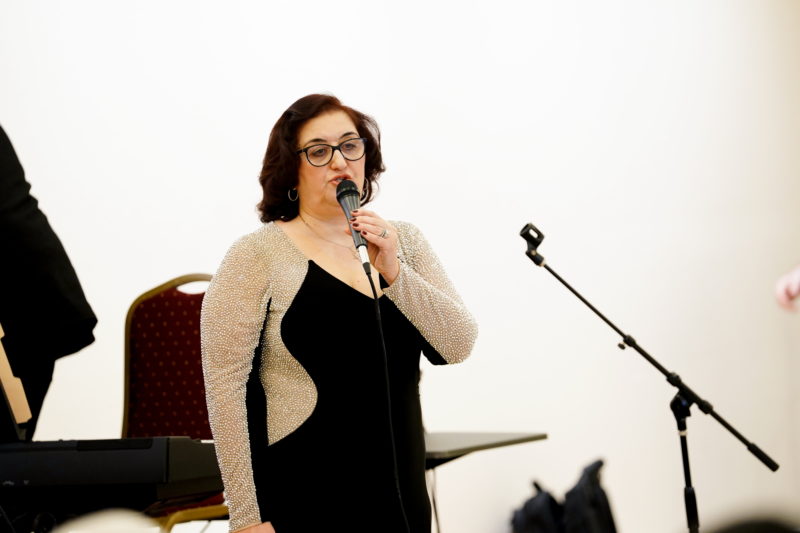
The portrait of Charents, hoisted on an easel on one side the stage, held everyone’s gaze. Yet, nothing was intended for conspicuous display. There was no podium, only a slightly elevated platform, big enough to accommodate the four musicians — Lilit Khojayan on kanun, Armen Stepanyan on duduk, Albert Ordinyan on dhol, and Roma Kanyan on keyboard — who accompanied the performers. Lilit stood in front of the platform blending into the audience. She nonetheless commanded attention with her anecdotes and relevant comments. It was a very warm and intimate setting.
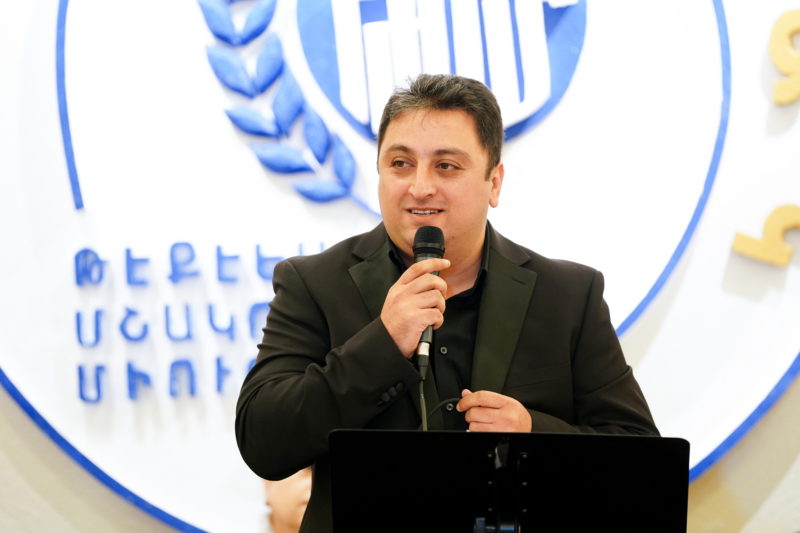
Highlighting the love life of the poet resonated for everyone. Actor/director Davit Asatryan’s recitation, together with Lilit Keheyan, of “Dagh Antznagan,” the poem Charents had dedicated to Garineh Kotanjyan, was received with much enthusiasm. Singled out, however, was the passion Charents had for for his first wife, Arpenik. The three singers, all professionals — soprano Salbi Mailyan and tenors Gagik Badalyan and Edgar Khachatryan —performed with much feeling, moving the audience to sway with the rhythm of their singing. The musical program concluded with the explosive performance, by Salpi and Edgar, of the poet’s ever popular ode to his homeland, “Yes Eem Anoush Hayastani . . . ,” a song William Saroyan has described as “the most beautiful song dedicated to our country, our land, and our history . . . almost a prayer, resembling the Lord’s Prayer.”
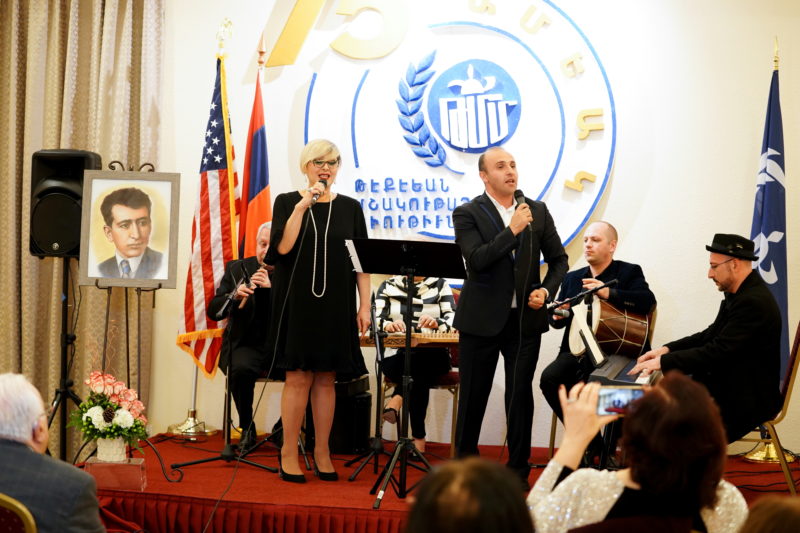
The celebration was testimony that “Life passes but the song lives on.” Our “mournful music” may very well be “the only balm” for the poet’s “orphaned and homesick heart . . . however sharp its wounds.” Indeed, Charents reminds us that our beauty resides in the “lilt of ancient lutes in sweet lament,” that he loved so much. “I am a singer,” says the poet, and we know that his song is here to stay. Armenia is forever. For one night at least, our existential fears and the wars in the homeland had become irrelevant. The poet has reassured us: “I have come through the centuries and I depart triumphant/to centuries once again, into the bright Tomorrow.”
The December 1 event was a fitting reminder of the literary and cultural mission of the Tekeyan Cultural Association (TCA). Referring to the previous week’s festivities in New York City, “The East coast did a superb job of presenting the political accomplishments of the TCA. The West highlighted its literary and cultural mission,” noted Edmond Y. Azadian, president of the Central Board of the Tekeyan Cultural Association of the United States and Canada, when invited to deliver closing remarks.
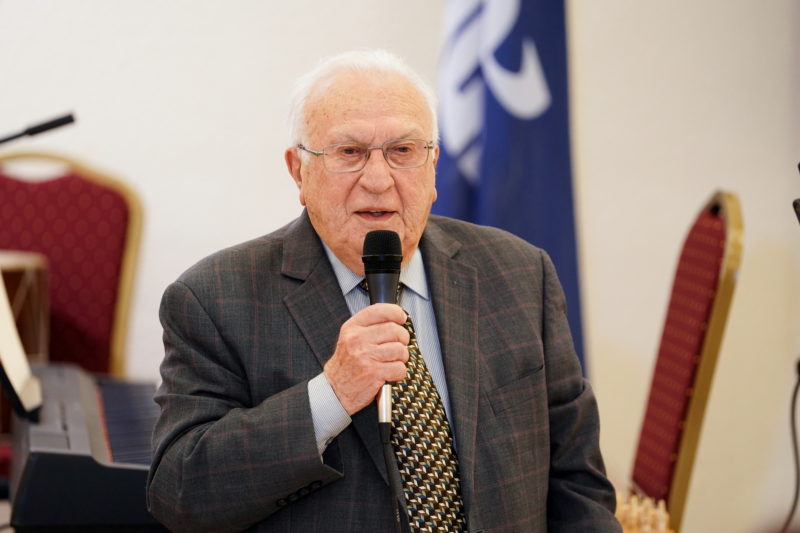
In a few improvised minutes, Azadian was able to evoke the tragedy, but also the beauty, of one who “belonged in the international treasury of geniuses,” worthy to sit at the same table with Goethe and Homer. Commenting on the site in Yerevan where Charents was buried upon his “death” in 1937, Azadian remarked: “What should have been a sanctuary does not even have the remains of the poet.” The reference was to the renowned Charents critic Davit Gasparian going to the burial site, spade and hoe in hand, looking for the poet’s remains and finding the grave empty. Azadian made it back to his seat in tears, bringing tears to everyone else’s eyes.
